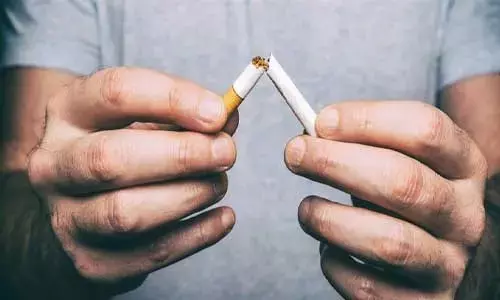- Home
- Medical news & Guidelines
- Anesthesiology
- Cardiology and CTVS
- Critical Care
- Dentistry
- Dermatology
- Diabetes and Endocrinology
- ENT
- Gastroenterology
- Medicine
- Nephrology
- Neurology
- Obstretics-Gynaecology
- Oncology
- Ophthalmology
- Orthopaedics
- Pediatrics-Neonatology
- Psychiatry
- Pulmonology
- Radiology
- Surgery
- Urology
- Laboratory Medicine
- Diet
- Nursing
- Paramedical
- Physiotherapy
- Health news
- Fact Check
- Bone Health Fact Check
- Brain Health Fact Check
- Cancer Related Fact Check
- Child Care Fact Check
- Dental and oral health fact check
- Diabetes and metabolic health fact check
- Diet and Nutrition Fact Check
- Eye and ENT Care Fact Check
- Fitness fact check
- Gut health fact check
- Heart health fact check
- Kidney health fact check
- Medical education fact check
- Men's health fact check
- Respiratory fact check
- Skin and hair care fact check
- Vaccine and Immunization fact check
- Women's health fact check
- AYUSH
- State News
- Andaman and Nicobar Islands
- Andhra Pradesh
- Arunachal Pradesh
- Assam
- Bihar
- Chandigarh
- Chattisgarh
- Dadra and Nagar Haveli
- Daman and Diu
- Delhi
- Goa
- Gujarat
- Haryana
- Himachal Pradesh
- Jammu & Kashmir
- Jharkhand
- Karnataka
- Kerala
- Ladakh
- Lakshadweep
- Madhya Pradesh
- Maharashtra
- Manipur
- Meghalaya
- Mizoram
- Nagaland
- Odisha
- Puducherry
- Punjab
- Rajasthan
- Sikkim
- Tamil Nadu
- Telangana
- Tripura
- Uttar Pradesh
- Uttrakhand
- West Bengal
- Medical Education
- Industry
Smoking at night may affect sleep hygiene, claims study

Smoking cigarettes at night have a stronger association with poor sleep than does smoking at earlier times in the day, suggests a new study published in Sleep Health on 18 November 2020.
Insomnia is a clinically verified nicotine withdrawal symptom. As nicotine is a CNS stimulant, it is plausible that smoking at night could disturb sleep more than smoking at earlier times of the day, but this remains empirically unclear. For this purpose, Alicia Nuñez et al, conducted a study to examine the smoking status and its associations with insomnia severity and sleep duration while considering the potential role of smoking time.
"While many people smoke to relax, nicotine is a stimulant. For this reason, people who smoke - especially at night - have worse insomnia and are more likely to get insufficient amounts of sleep," said Dr Michael Grandner of the University of Arizona College of Medicine in Tucson.
The researchers analyzed data from the Sleep and Healthy Activity Diet Environment and Socialization study, which included 1,007 adults (n nonsmokers = 818; n smokers = 189) between ages 22-60 in Philadelphia from 2012 to 2014. Researchers assessed Insomnia with the Insomnia Severity Index and categorized as none, mild, and moderate-to-severe and assessed Sleep duration with one item from the National Health and Nutrition Examination Survey and categorized as very short, short, normal, and long.
After analyzing both the groups (non-smokers and smokers) researchers found participants in the smoking group experienced an increased rate of insomnia when compared with nonsmokers. They also found Smoking was also associated with 3.3-fold higher odds of a "very short" sleep duration of four hours or less, also a significant risk increase, as well as a higher risk of "short" sleep duration of five or six hours.These findings suggest that night-time smoking have a significantly associated with insomnia and shorter sleep duration.
The authors concluded, "Findings provide evidence that smoking is associated with increased insomnia severity and shorter sleep duration, particularly nightly smoking. Sleep health should be considered in smoking cessation efforts".
For further information:
Medical Dialogues Bureau consists of a team of passionate medical/scientific writers, led by doctors and healthcare researchers. Our team efforts to bring you updated and timely news about the important happenings of the medical and healthcare sector. Our editorial team can be reached at editorial@medicaldialogues.in.
Dr Kamal Kant Kohli-MBBS, DTCD- a chest specialist with more than 30 years of practice and a flair for writing clinical articles, Dr Kamal Kant Kohli joined Medical Dialogues as a Chief Editor of Medical News. Besides writing articles, as an editor, he proofreads and verifies all the medical content published on Medical Dialogues including those coming from journals, studies,medical conferences,guidelines etc. Email: drkohli@medicaldialogues.in. Contact no. 011-43720751


